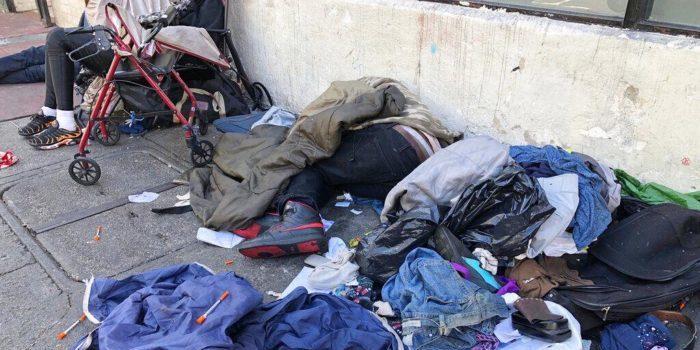(Headline USA) San Francisco Supervisor Dean Preston claimed this week that homelessness in his district is “absolutely the result of capitalism” and insisted it would be “counterproductive” to arrest people openly doing drugs.
Preston represents District 5, or the Tenderloin District, which is known for its rampant homelessness and open-air drug market. In fact, nearly half of the city’s homeless population lives in District 5, according to the San Francisco Chronicle.
These issues are more the fault of individual landlords and business owners than city officials, Preston, a democratic socialist, claimed in a new documentary by UnHerd.
“The biggest driver of why folks are on the street is because they lost their jobs, income or were evicted from their homes, usually for not being able to pay the rent,” he said. “So you have major landlords literally causing folks to lose their homes, and real estate speculation making it impossible for folks to find an affordable place to live.”
Rampant crime and homelessness is “what happens in capitalism to the people at the bottom rungs,” Preston continued.
He also argued that the city should stop policing the Tenderloin District’s open-air drug market entirely, arguing that an “inconsistent” approach to arresting drug users is “completely counterproductive.”
This method “has not made our city any safer,” he claimed. “It’s actually made it less safe. It increases overdoses.”
As the scourge of lawlessness continues to drive residents, businesses and tourists out of the city, San Francisco recently announced that it would begin to require drug screenings in order for welfare recipients to receive their regular payments.
However, contrary to Preston’s claims, there has been no indication that the city plans to toughen up its policing to address the rampant drug use.
When asked whether his approach would exacerbate concerns about public safety within San Francisco, Preston insisted that drug-dealing and homeless encampments were not that big of a deal.
“I don’t think every instance of poverty or addiction or behavioral health issue is a safety threat to someone walking by,” he claimed. “I mean, there’s a lot of people who are doing things that are very harmful to themselves on the streets, who aren’t necessarily a safety threat.”

